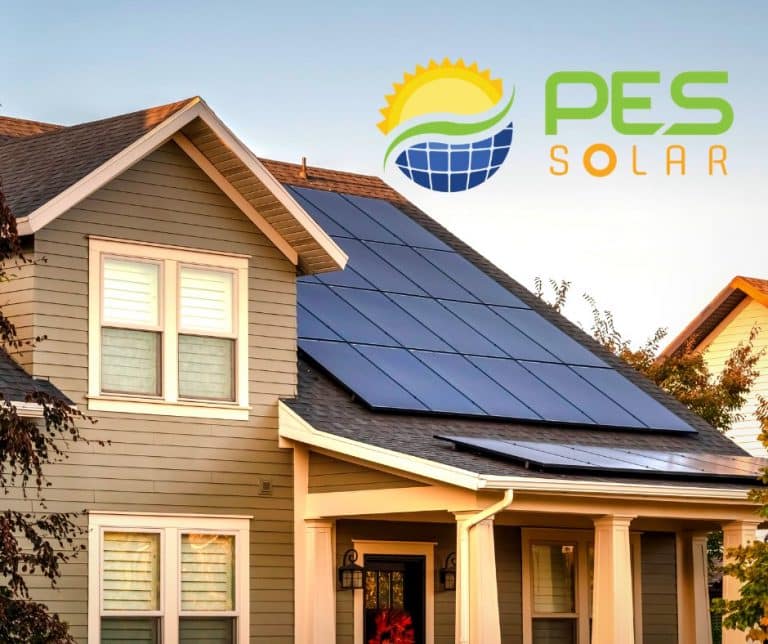Need help choosing the best solar panels for your energy needs? Call 800-650-6519 to schedule a consultation with PES Solar.
When choosing solar panels, rating information helps homeowners and installers balance performance with cost. Every home has different energy needs, and the best panels for your installation will offer the necessary power output for an affordable price. This article explains how solar panels are rated and the factors that affect power output and panel efficiency.
How Are Solar Panels Rated?
Not every panel produces the same output or functions with the same efficiency. Power output and efficiency ratings help homeowners and installers select the most suitable panels for each project. Your home may not need the most expensive solar setup with the highest ratings to meet your energy needs.
Power Output
Manufacturers calculate power output ratings in watts, a unit of measurement referring to the rate at which the panel transports solar energy. A higher-watt panel generates more power than a lower-watt panel with the same efficiency rating. For most residential installations, solar companies use 250- to 400-watt solar panels.
Efficiency
A higher-watt panel may not produce more energy than a lower-watt panel with better efficiency. A panel’s efficiency rating measures the percent of solar energy converted into usable energy. Modern panels typically have efficiency ratings between 15% and 22%, with higher ratings indicating more power generation.
Factors Affecting Solar Panel Output
When selecting solar panels, rating data only presents part of the picture. Solar panel performance depends on many other factors besides the energy output and efficiency ratings, including:
- Home location
- Roof shading
- Panel position
- Peak sun hours
- Outdoor temperature
- Air quality (smog)
For example, two identical solar systems on homes in California and Maine will produce different amounts of energy because the former receives more peak sun hours per day.
Factors Affecting Solar Panel Efficiency
The main factor impacting solar panel efficiency is how the manufacturer formed the silicon wafers within each of the panel’s solar cells. Monocrystalline panels contain wafers cut from one homogenous crystal, while polycrystalline panels contain a mix of silicon fragments melted together.
The most efficient panels are monocrystalline because they facilitate easier electron movement. Most residential solar systems installed today use this panel type for the best efficiency ratings.
Let PES Solar Tackle Your Solar Panel Installation
If you want to take advantage of the sun’s renewable energy at your Florida home, you can trust PES Solar to design and install your solar panels. We’ll help you calculate your energy needs and choose the best panels for your project. Our experienced team understands how to balance solar panel efficiency, power output, and price to provide a suitable and affordable system.
Do you want to learn more about how we use solar panels rating information to design reliable solar systems? At PES Solar, we install solar panel systems across Florida, in Orlando, Clearwater, Tampa, Deltona, West Palm Beach, and the surrounding areas. Call us today at 800-650-6519 for a consultation.

